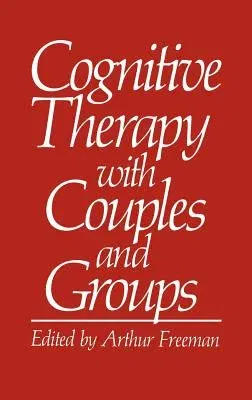It is with great pride and satisfaction that I welcome the publication
of Cognitive Therapy with Couples and Groups. For several years, Arthur
Freeman, Director of Clinical Services at the Center for Cognitive
Therapy, has been a leader in attempting to extend a cognitive approach
to new problems and new populations and to expand the approaches for
treating the depressed outpatients for whom this approach was first
developed. Dr. Freeman brought to the Center the full range and depth of
a diverse clinical background which had and continues to broaden and
enrich his work both as a therapist and as a teacher. I believe he has
applied these dimensions of his experi- ence fully in developing and
editing this volume. The chapters in this book clearly reflect those
clinical problems that have attracted the keenest interest on the part
of practicing cognitive therapist, which are encountered so frequently
in the course of treating depression. The utilization of cognitive
therapy with couples, families, groups, and in training is a clear
example of this process, an intriguing topic in its own right.
Conversely, coping with special clinical phe- nomena such as loneliness
is a familiar problem to therapists of de- pressed patients. Laura
Primakoff demonstrates her creativity and expe- rience in her treatment
of this subject. Similarly, the chapters on al- coholism and agoraphobia
are timely elaborations of the original cogni- tive model for the
individual treatment of depression.

